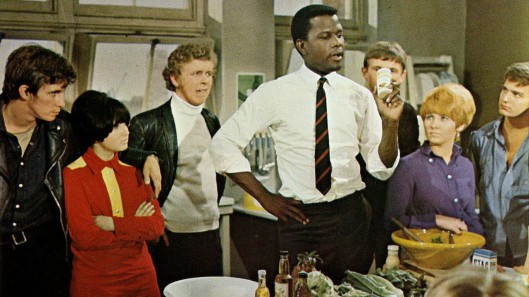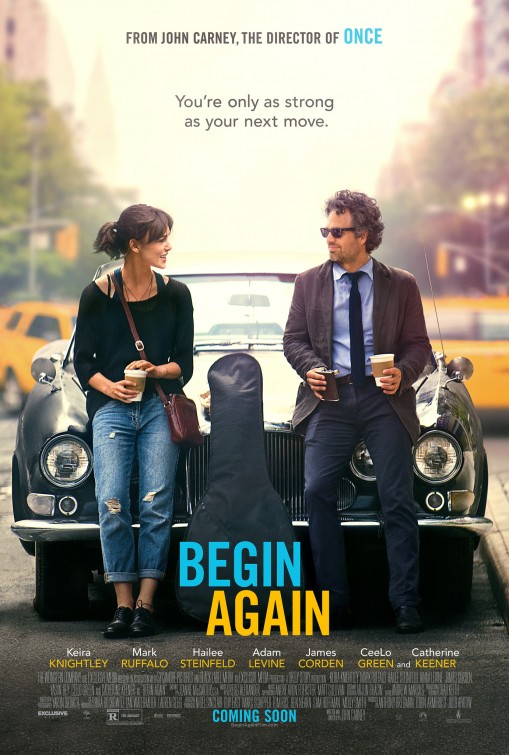Tags
Animation, Drama, Eman Xor Oña, Fernando Trueba, Havana, Javier Mariscal, Limara Meneses, Love story, Music, Review, Romance
D: Fernando Trueba, Javier Mariscal / 90m
Cast: Limara Meneses, Eman Xor Oña, Mario Guerra, Lenny Mandel
In 1948, in Havana, budding pianist Chico (Oña) and his best friend, Ramon (Guerra), are enjoying a night on the town with a couple of American tourists when he encounters Rita (Meneses), a singer with the most beautiful voice Chico has ever heard. For Chico it’s love at first sight, and he pursues her, but it’s not until he proves his mettle as a pianist that Rita begins to consider him as boyfriend material. Once she does, their relationship blossoms until an unfortunate incident drives a wedge between them – and on the eve of a talent competition that they’ve a good chance of winning. Chico has written a special song for the competition that’s dedicated to Rita, and Ramon persuades her to still take part. They win, and part of the prize is a month’s residency at the Hotel Nacional. But Rita’s talent and beautiful looks attract the attention of an American businessman, Ron (Mandel), who wants to take her to New York and make her a star. However, Chico’s jealousy drives a further wedge between them, and Rita goes to New York with Ron. Realising his mistake too soon, Chico too heads for New York, but a reconciliation isn’t as easy as he hopes…
A vibrant and vividly portrayed romance set against a colourful backdrop of artistic and cultural change, Chico & Rita is a hugely enjoyable celebration of love and music that thrums with a passion and a vigour that could only have been achieved through its unique combination of animation and the jazz stylings of the period. It’s rare to see an animated movie that uses music to such good effect in electing to tell its simple story of love and heartbreak, and the pain that both characters are able to feel and express through their love of music. Their love affair is a thing of beauty and regret, of ill-advised decisions and wasted opportunities, of battered ambitions and tender expressions – in short, it’s a love story that resonates with every glance and gesture no matter what the emotion behind it. There’s not a false note (no pun intended) in the way that Chico and Rita’s relationship plays out, and the script – by Trueba and Ignacio Martínez de Pisón – keeps the viewer guessing all the way through as to whether or not they’ll have the happy ending they deserve. Beautifully observed, and rendered with a great deal of charm, this is a love story that would be hard to replicate with real people.
Chico & Rita is also a movie where the backdrop is just as lovingly and beautifully rendered as the main storyline, with co-director Mariscal using his skills as a designer and artist to create a visually arresting depiction of late Forties/early Fifties Havana, and the bright lights of Fifties New York and Las Vegas. This is another area where the movie has a vibrant, energetic feel to it, and the characters take their place amidst the noise and the commotion and the excitement of their surroundings so naturally that their whole environment feels completely realistic (even though the animation is highly stylised). It’s a tremendously life-affirming movie as well, bold and daring, and willing to take risks such as in a handful of scenes that are unapologetically sensuous and erotic, but still in keeping with the mood and tone of the movie and its approach to Chico and Rita’s tempestuous realtionship. Along the way there are astute explorations of the casual racism of the period – Rita achieves fame in Hollywood but loses out on respect because of her origins – and the flourishing jazz fusion that occurred when Cuban musicians met American musicians. It’s all of a piece, though, wonderfully thought out and assembled, and one of the most impressive animated movies of the current decade.
Rating: 9/10 – with a killer soundtrack that features the likes of Dizzy Gillespie, Charlie Parker, and Thelonius Monk alongside compositions and arrangements by Bebo Valdés, Chico & Rita is a vivid piece of movie making that tells its agonising tale of tragic love with gusto and huge, great heaps of charm; simply irresistible, whether you’re a fan of animation or not (or even Cuban music), and often breathtaking in the way that it dissects a simple love affair with precision and skill.























































